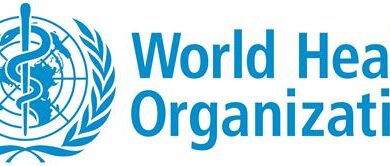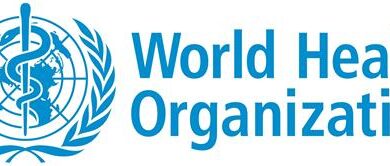Food Fortification and Supplementation Remain Primary Sources For Micronutrients – Experts

L-R: Dr Kanalio Yvonne Olaloku, Nestle Nutrition Institute Manager; Victoria Uwadoka, Corporate Communications, Public Affairs and Sustainability Lead, Nestle Nigeria; Chioma Umeha, Team lead, Society for Media Advocacy on Health (SOMAH), and Kareem Saheed, Factory Engineering Manager, Nestle Nigeria, Agbara, during the SOMAH Capacity Building Workshop on “Fortification As A Strategy’ and Tour of Nestle Nigeria Plc, Agbara Factory, Ogun State on Friday.
Food fortification and supplementation remain the primary sources for delivering key micronutrients needed to fight against the scourge of malnutrition in our society, experts have said.
Those who spoke at the one day capacity building workshop themed “Fortification As A Strategy” organised by Nestle Nigeria for members of Society For Media Advocacy On Health (SOMAH) at Nestle Nigeria’s ultra-modern factory at Agbara in Ogun State recently, included Victoria Uwadoka, Corporate Communication/Public Affairs and Sustainability Lead; Haile Tesfalidet, Head, Research and Development (R&D); Audrey Essilfie, Nutritionist (R&D) Sub-Saharan Africa and Patricia Ekaba, Head, Corporate Communication/Public Affairs and Sustainability, Nestle, Central and West Africa.
The discussion at the workshop was focused on the food fortification and supplementation as a strategy of making nutritious food affordable, available and accessible for all as well as the need to encourage the consumption of nutritious foods or fortified foods that contain adequate nutrients through awareness and advocacy programmes and strong collaboration for purposeful product and services tailored toward meeting the needs of the people.
In her presentation titled “Malnutrition in Nigeria – Fortification as Strategy for Improving Nutrition Indices,” Dr. Kanalio Olaloku of the Nestle Nutrition Institute Central West African Region highlighted why food fortification and supplementation remain the key sources for improving nutrition indices, just as she said there is a wide range of other interventions to tackle micronutrient inadequacies.
According to her, There is a wide range of interventions available to tackle micronutrient inadequacies. For the long-term, interventions aimed toward increasing dietary diversification should be the central component of micronutrient deficiency prevention and control efforts.
“It must be recognized that these interventions will take time to show impact, and they might not provide the required amounts of all nutrients needed throughout the lifecycle. Until populations’ diets improve, and to meet the deficiencies that longer-term intervention will correct, food fortification and supplementation remain the primary sources for delivering key micronutrients to all risk populations,” Dr. Kanalio said.
Food fortification, according her, “Is the practice of deliberately increasing the content of one or more micronutrients (i.e., vitamins and minerals) in a food or condiment to improve the nutritional quality of the food supply and provide a public health benefit with minimal risk to health as well as increasing the nutritional content of staple foods, the addition of micronutrients can help to restore the micronutrient content lost during processing.”
On why food fortification is the best option to boosting micronutrients, Dr Kanalio said “Food fortification is widely identified as a cost-effective strategy for addressing micronutrient malnutrition at scale. In Nigeria, food fortification with a focus on vitamin A, Iron, zinc, iodine, and other micronutrient remains a major thrust of the effort to eliminate micronutrient malnutrition.”
Explaining what micronutrients are, she said “Micronutrients are vitamins and minerals needed by the body in very small amounts,” adding that their impact on a body’s health is critical, ad deficiency in any of them can cause severe and even life-threatening conditions.
She said micronutrient deficiencies have been an enduring problem in Nigeria, adding that the prevalence of Vitamin A deficiency is estimated at 30 per cent and 70 per cent of children are anaemic.
Dr Kanalio stated that deficiencies in iron, Vitamin A and iodine are the most common around the world, particularly in children and pregnant women.
People in developing countries are far more likely to live in social and economic situation that exacerbate anaemia such as pregnant women, infants, and pre-school children. In Africa, 50 per cent and 40 per cent of pregnant women and pre-school children respectively are estimated to be anaemic.
In Nigeria, according to Dr. Kanalio, the prevalence of iron deficiency anaemic (IDA) among pre-school children is estimated at about 70 per cent.
Emphasising the need for consumption of food rich in Iron, she said “Iron deficiency is the largest micronutrient deficiency globally and, in our countries with devastating impact on children’s development and on women of childbearing age as a result of low awareness of our vulnerability to Iron deficiency anaemia and low consumption of iron-friendly diet – which also contributes to balanced eating.”
On why malnutrition is so endemic in Nigeria, according to Dr Kanalio, is that poverty and malnutrition are inextricably linked, adding that one of the consequences of poverty is the lack of access to nutritious food, which predisposes people to poor nutrition thereby increasing the chances of malnutrition.
On what Nestle is doing about micronutrient deficiencies, the expert said, the Company is working assiduously to increase awareness of the importance of iron, the severe impact of Iron Deficiency Anemia, and the affordable and accessible solution in collaborative partnership with stakeholders namely: Federal Ministry of Health (FMH), Federal Ministry of Agriculture and Rural Development (FMARD) and the Federal Ministry of Education (FME) to drive advocacy for better eating choices.
She said the firm also involved in the education and training of Health Care Professional on practical interventions to reduce malnutrition, noting that 83 per cent of the regions have recorded 49 per cent decrease in malnutrition.
On the solution and way forward of how to tackle malnutrition; experts who spoke at the workshop advocated food fortification and supplementation; regular deworming; dietary diversification; enhanced caregiver capability; multi-sectoral approach/partnership; continued research/data availability also emphasised the need for the media to play its roles as one of the critical stakeholders to ensure the success of this campaign.





